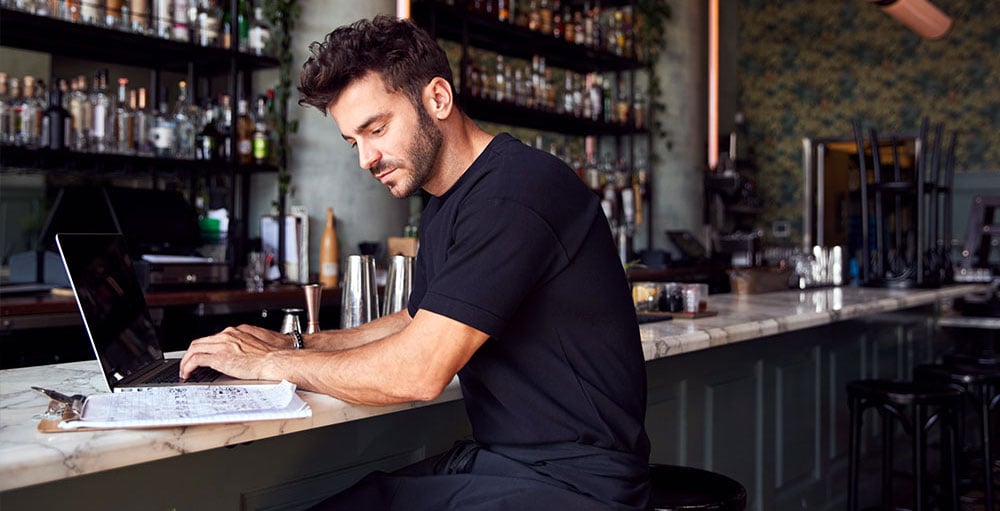You could be held liable for someone else’s negligence. Here’s what you need to know.
Before you open a licensed business or become an alcohol server, you’ll need to be well versed in various laws and liabilities that could apply to you once you’re working with the public and serving drinks.
Dram shop laws or dram shop liability have to do with a person who drank alcohol at an establishment, then caused an accident while intoxicated. These laws allow victims of drunk drivers to seek compensation from the bar owner or manager, or even the employee who overserved while on duty.
You may be wondering where the term “dram shop” comes from. Bars and taverns used to sell alcohol to customers in small units of measurement called drams. So, dram shop liability is the liability that can be imposed against a bar or tavern for negligent service that results in injury or death.
You can be held civilly liable
Three types of liabilities — criminal, civil and administrative — apply to alcohol servers who break laws or regulations around alcohol service. Dram shop law falls under civil liability.
Civil liability is about compensating people who were hurt by someone who acted negligently. For an alcohol server, negligence would mean serving alcohol irresponsibly. Under dram shop laws, an alcohol server, their manager or their employer could be sued if alcohol was served to a minor or an already intoxicated person and that person either injures themselves or another person.
How dram shop law plays out in real life
A drunk driver can devastate their own lives and the lives of so many other people around them, and so laws were created to give victims the compensation they deserve.
Here’s a common example: A customer leaves your bar while too intoxicated to drive, and drives anyway. On the way home, they kill another driver. Dram shop law would apply here, so the family of the person who died could sue the manager and bar owner for the irresponsible service of alcohol.
There is no specific business insurance covering dram shop liability; rather, the premium for this type of insurance is based on the establishment’s gross sales. The more alcohol sold, the higher the premiums. It should also be noted that this insurance may not protect an employee or business from litigation if the insurance company finds that the customer was overserved due to negligence.
State-to-state differences
Dram shop laws are implemented on the state level — each state decides how much or little the establishment that served the alcohol should be held responsible for the actions of a drunk driver.
Some states require that the person who intends to pursue legal action notify the establishment they’re suing within a certain period of time, for example, within 60 days of the accident.
Make sure you know the specifics for your state on all potential liabilities before you go into the alcohol service business!
How to prevent liability
Obviously, you don’t want to face legal issues as a result of your alcohol service. To avoid liability, the key is to avoid overserving!
This means:
- Counting drinks: As soon as your customer arrives to the time they leave, count their drinks — keeping in mind that some drinks, such as a Long Island Iced Tea or certain specialty beers, actually contain more than one standard serving of alcohol.
- Using BAC charts to estimate intoxication levels: Your establishment should have Blood Alcohol Concentration (BAC) charts handy so you can quickly estimate just how intoxicated your customer is based on their sex, weight and rate of consumption.
- Monitoring customers for signs of intoxication: Look out for the classic signs of intoxication, such as slurred speech, bloodshot or droopy eyes, stumbling, or becoming overly confident or aggressive.
- Having taxi or designated driver service numbers ready: Have a list of phone numbers that the customer or you can call to ensure they don’t drive home drunk.
- Knowing how to stop service. If you determine that the customer is intoxicated, you must stop service. Make sure you do so in a polite and firm manner, away from an audience so you don’t embarrass your customer. Have backup ready in case the situation becomes tense or too difficult to handle.
Be prepared for all of the legal issues your business could face for overserving. Learn more about the penalties and legal consequences a licensed business owner could face for breaking alcohol service laws and your legal responsibilities as an alcohol server.
Userve’s Alcohol Server Training Programs provide the comprehensive training you need to keep up to speed on all aspects of responsible alcohol service. Help prevent yourself and your business from being held liable by getting equipped with the essential knowledge for how to spots the signs of intoxication and stopping service.

